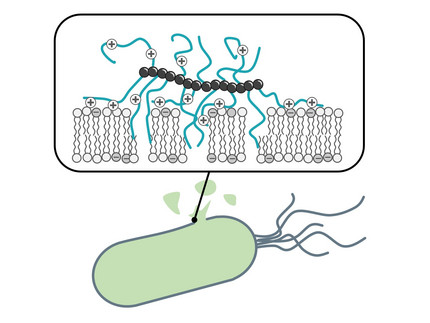Welcome to the Polymeric Biomaterials Group at the University of Potsdam
Polymeric Biomaterials Group
We are designing polymeric materials for the use in biomedical applications. In particularly , we are interested in antimicrobial polymers as they are a possible solution to the ever increasing issue of antimicrobial resistance. To create more efficient and selective materials, we are using various tool of polymer chemistry including RAFT-polymerization, ROMP, Cationic ring-opening polymerization, and supramolecular polymerization. We have a specific interest in how the polymeric architecture influences the biological activity of these biomaterials. ...more
Stop motion video representing our research on antimicrobial polymers
Alains Poster Presentation on Membrane Interaction of Antimicrobial Bottle Brushes
Alain Bapolisi introduces his poster (Makro@Freiburg) and explains his work on the investigation of the interaction of antimicrobial polymers and membrane models such as liposomes.

